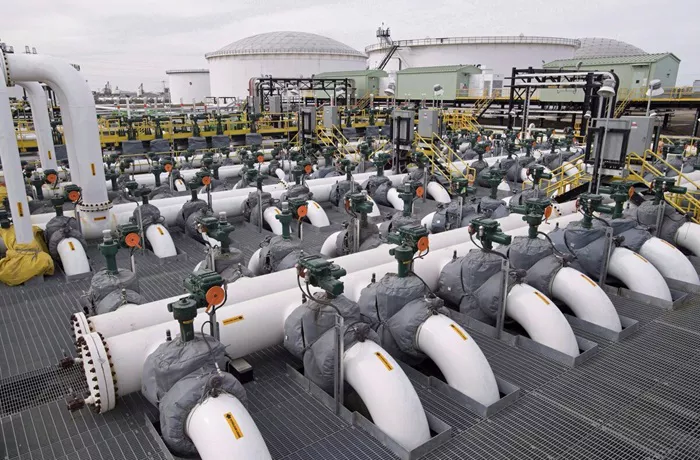Alberta Premier Danielle Smith announced her government is actively collaborating with oil companies to develop a new pipeline proposal to Canada’s West Coast. She expressed confidence that Prime Minister Mark Carney will “operate in good faith” on the pipeline file.
The provincial government has proposed a conditional agreement to Mr. Carney: oil companies would commit to constructing the Pathways Alliance carbon-capture project if federal approval is granted for a new oil pipeline.
The urgency to expand pipeline capacity has intensified amid President Donald Trump’s trade war, which has spurred Canada’s fossil-fuel sector to seek diversified export routes beyond the United States—the country’s largest energy customer.
While Mr. Carney has pledged to transform Canada into an energy superpower, Ms. Smith emphasized that this vision depends on securing new pipeline infrastructure capable of transporting Alberta’s oil and gas to Canadian coasts—whether west, north, or east—to reach global markets.
British Columbia’s Energy Minister, Adrian Dix, recently dismissed the idea of building a pipeline through B.C., citing prohibitive costs and logistical challenges. However, Ms. Smith remains optimistic about persuading B.C. Premier David Eby of the project’s benefits.
Speaking at the Global Energy Show in Calgary, she noted, “There’s no project and no proponent yet—well, that’s my job. There will be soon.” She stressed efforts to rally private-sector industry players around the potential for a different outcome this time.
To overcome the “chicken-and-egg” dilemma—where no company will propose a pipeline without approval guarantees—Alberta plans to assist interested proponents in navigating Mr. Carney’s promised two-year federal approval process.
Ms. Smith said, “The Prime Minister, I want to take him at his word that he wants to operate in good faith. So we’re going to operate in good faith.”
The Premier aims to secure inclusion of both a new oil pipeline and the Pathways Alliance carbon-capture project on the federal government’s list of major infrastructure priorities. The carbon-capture initiative envisions a 400-kilometre pipeline transporting emissions from oil sands operations to an underground storage hub near Cold Lake, Alberta, potentially reducing emissions by 22 megatonnes annually.
Estimated to cost between $10 billion and $20 billion, the project lacks direct revenue. But Ms. Smith argued that coupling it with a pipeline capable of transporting one million barrels per day could generate $20 billion in annual revenue, making the decarbonization effort financially more viable.
Despite skepticism, Ms. Smith expressed hope that federal policies under Mr. Carney will be more supportive than those of former Prime Minister Justin Trudeau.
“The world has changed dramatically since Donald Trump got elected in November,” she said. “I think that’s changed the national conversation, and [Mr. Carney] now has the ability to show leadership and be able to substantially revise or completely eliminate some of those bad policies.”
Her optimism resonated with several industry leaders at the Global Energy Show, who welcomed Mr. Carney’s approach but called for swift federal action beyond rhetoric.
Darlene Gates, CEO of MEG Energy, observed, “Change is hard when we get a new federal government. But the excitement with change is it creates new opportunities… the conversation is changing.”
Mark Fitzgerald, CEO of Petronas Canada, praised Mr. Carney’s vision of making Canada a clean and conventional energy superpower, noting increased interest among companies to invest in Canada.
Chris Doornbos, CEO of E3 Lithium, also expressed optimism following roundtable discussions with Mr. Carney and Natural Resources Minister Tim Hodgson, describing the talks as “very tactical” and focused on “problems and solutions”—a marked shift from previous administrations.


